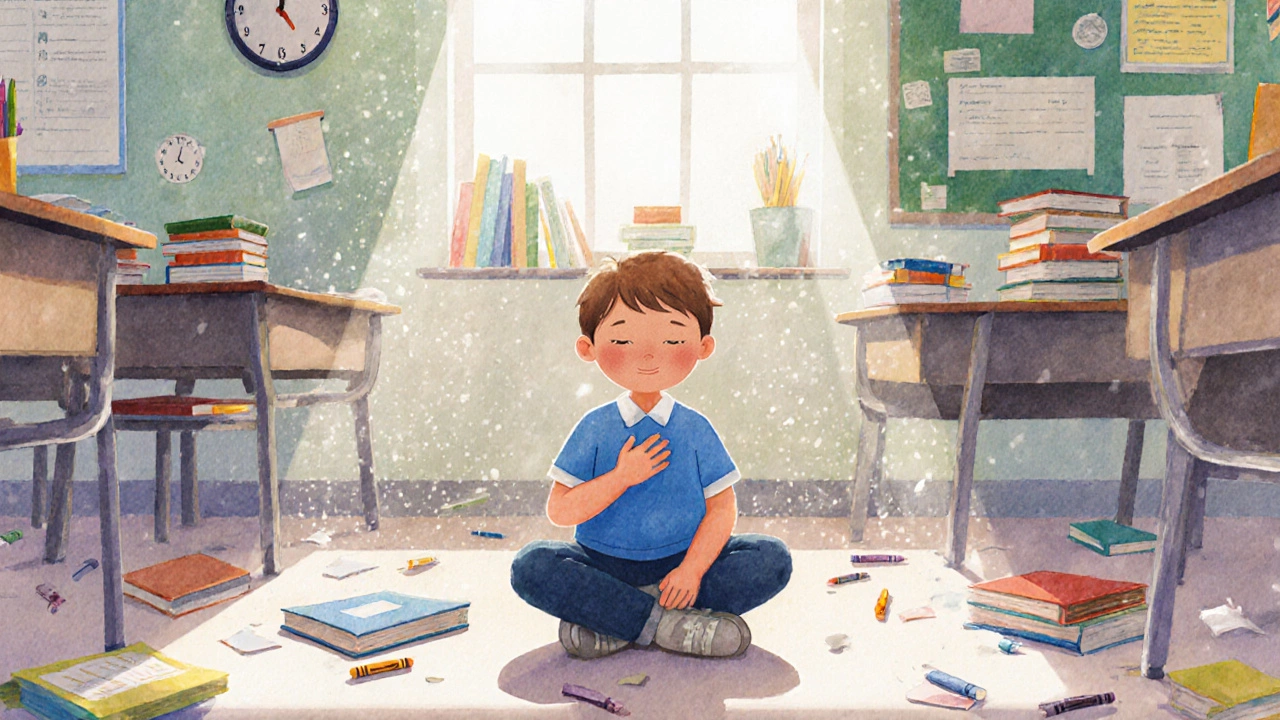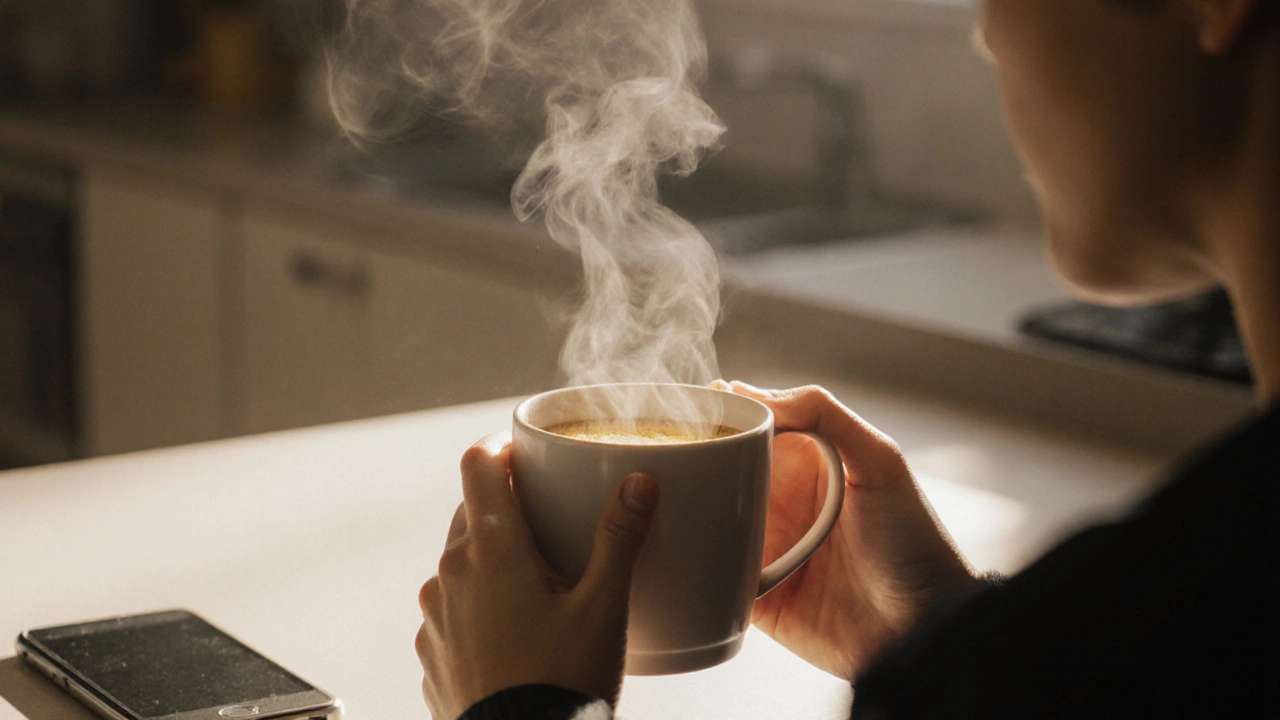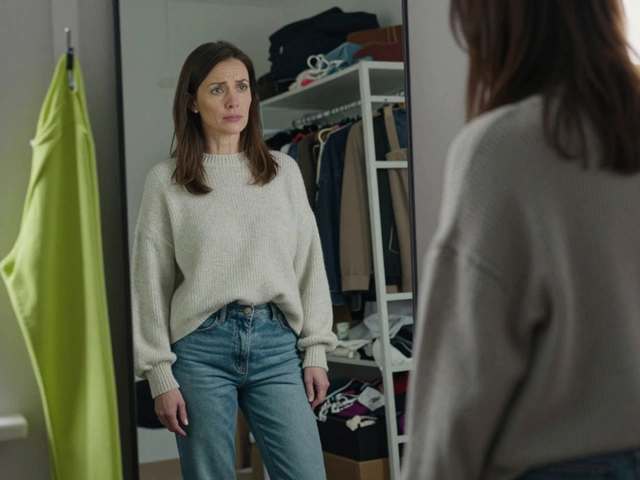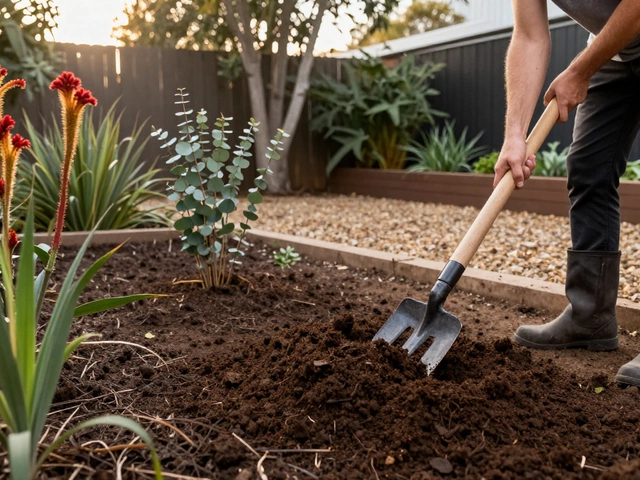Mindfulness Practice Tracker
Your Mindfulness Journey
Track your daily practice to see how small moments add up. Consistency matters more than duration.
Remember: Mindfulness isn't about perfection. Even 5 minutes a day for 30 days changes your brain more than an hour once a week. Just notice when you're not mindful and gently bring your attention back.
Mindfulness Benefits
Notice less reactivity in stressful situations
Lower baseline stress levels, better sleep quality
Brain changes: smaller amygdala (stress center), thicker prefrontal cortex (focus center)
Mindfulness is the simple act of paying full attention to what’s happening right now-without judging it, trying to change it, or getting lost in thoughts about the past or future.
Why This One Sentence Matters
People throw around the word "mindfulness" like it’s a magic trick. Buy this app. Do this breathing exercise. Wear these crystals. But the real thing? It’s not about buying anything. It’s not even about sitting cross-legged for an hour. It’s about noticing what’s already here. The sound of your breath. The weight of your feet on the floor. The way your shoulders tense when you check your phone. That’s it.That one sentence cuts through the noise. No need to "empty your mind." No need to "achieve peace." You don’t need to be calm to be mindful. You just need to be aware. Even for five seconds. Even when you’re stuck in traffic. Even when your kid is screaming. Even when your boss just sent that email.
What Mindfulness Is Not
It’s not meditation, though meditation can help. You can be mindful while washing dishes, walking to your car, or waiting for your coffee to brew. Meditation is a training tool. Mindfulness is the skill you’re building.It’s not relaxation. Sometimes, being mindful means noticing how angry, anxious, or overwhelmed you are. You don’t have to fix it. You just have to see it. That’s the first step. Many people quit mindfulness because they expect to feel zen. Instead, they feel more stress-because they’re finally paying attention to how stressed they really are.
It’s not about stopping thoughts. Your brain is wired to think. Mindfulness doesn’t shut that off. It just changes your relationship with those thoughts. Instead of believing every thought like it’s a fact-"I’m terrible at this," "Everyone thinks I’m awkward," "I’ll never get it done"-you start to see them as passing weather. Clouds in the sky of your mind. You don’t need to chase them away. You just need to notice they’re there.

How It Works in Real Life
Think about the last time you ate a meal while scrolling through your phone. You didn’t taste it. You didn’t feel it. You barely remembered eating it. That’s autopilot. Mindfulness is the opposite.Try this next time you drink coffee: Hold the cup. Feel the heat. Smell the steam. Take one slow sip. Let it sit on your tongue. Notice the bitterness, the warmth, the aftertaste. That’s mindfulness. No app. No timer. Just you and your coffee.
Or when you’re walking: Feel your foot hit the ground. Notice the air on your skin. Hear the birds, the cars, your own breath. Don’t try to make it better. Don’t try to make it quiet. Just notice. That’s all.
Studies from Harvard and Stanford show that just eight weeks of regular mindfulness practice can shrink the amygdala-the part of the brain that triggers stress-and thicken the prefrontal cortex, which helps you stay calm and focused. You don’t need hours. You need consistency. Five minutes a day, for 30 days, changes your brain more than an hour once a week.
Common Misconceptions
Some think mindfulness is for spiritual people, yogis, or people with too much free time. That’s not true. Nurses, firefighters, teachers, and single parents use it to survive their days. One nurse told me she uses mindfulness between patient visits-just three breaths before opening the door. That’s it. Three breaths. No chanting. No incense. Just awareness.Others think it’s a quick fix. It’s not. Mindfulness won’t make your problems disappear. It won’t fix your marriage or get you that promotion. But it will help you respond to stress instead of reacting to it. That’s the difference. Reacting is yelling when you’re tired. Responding is taking a breath, noticing your anger, and choosing your words.
And it’s not about being "good" at it. Some days your mind will be quiet. Other days, it’ll be a circus. Both are normal. The goal isn’t to get better at mindfulness. The goal is to get better at noticing when you’ve stopped being mindful.

Where to Start-No App Needed
You don’t need to download anything. You don’t need to join a class. You don’t need to buy a cushion.Here’s how to begin today:
- Choose one daily activity: brushing your teeth, washing your hands, waiting in line, eating breakfast.
- Do it slowly. Pay attention to every sensation.
- When your mind wanders (it will), gently bring it back. No scolding. Just notice. "Oh, I’m thinking about my meeting." Then return to the feeling of the toothbrush, the water, the taste.
- Do this for three days. Just one activity. That’s it.
After three days, you’ll notice something: You’re less on autopilot. You’re more present. You’re not trying to be mindful. You just are.
The Bigger Picture
Mindfulness isn’t a trend. It’s a return to something ancient and simple: being human. We’ve spent decades training ourselves to multitask, to rush, to fix, to improve, to perform. Mindfulness asks you to stop. Just for a moment. To be where you are. To feel what you feel. To let things be.That’s not weakness. That’s strength. Real strength isn’t pushing through pain. It’s pausing long enough to understand it.
And that one sentence? It’s the whole practice. Pay attention. Without judgment. Right now.
Can mindfulness help with anxiety?
Yes. Mindfulness doesn’t erase anxiety, but it breaks the cycle. When you feel anxious, your mind usually races ahead-"What if I fail?" "What if they hate me?" Mindfulness pulls you back to your body: your breath, your feet, your hands. This interrupts the spiral. Research from Johns Hopkins found mindfulness meditation as effective as antidepressants for mild to moderate anxiety, without side effects.
Do I need to meditate to be mindful?
No. Meditation is one way to train mindfulness, like lifting weights trains strength. But you can be mindful while walking, eating, listening to someone, or even washing dishes. The key is paying full attention to the activity you’re already doing-not adding something new.
How long until I notice a difference?
Most people notice small shifts in a week-like feeling less reactive in traffic or remembering to breathe during a stressful call. Deeper changes, like lower baseline stress or better sleep, usually show up after 4-6 weeks of daily practice, even if it’s just 5 minutes.
Is mindfulness religious?
It has roots in Buddhist traditions, but modern mindfulness is secular. It’s based on neuroscience and psychology, not spirituality. You don’t need to believe in anything to practice it. You just need to be willing to notice what’s happening inside and around you.
What if I can’t stop thinking?
You’re not supposed to. Thinking is what brains do. Mindfulness isn’t about stopping thoughts-it’s about noticing when you’ve gotten lost in them. Every time you realize you’re thinking about your to-do list and bring your attention back to your breath? That’s the workout. That’s the progress.
Can kids or teens practice mindfulness?
Absolutely. Schools in the U.S. and UK now teach mindfulness to students as young as five. Simple practices like "stop and breathe" before tests or noticing five things they can see, hear, and feel help kids manage stress, focus in class, and regulate emotions. It’s not about sitting still-it’s about learning to pause.










